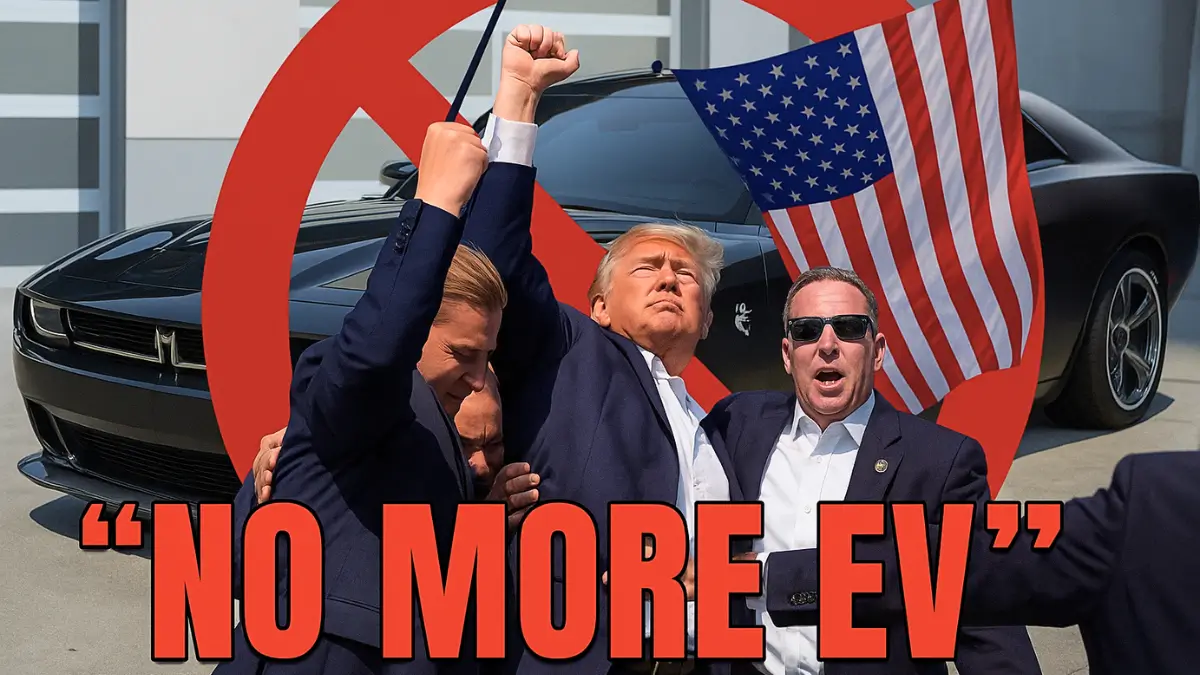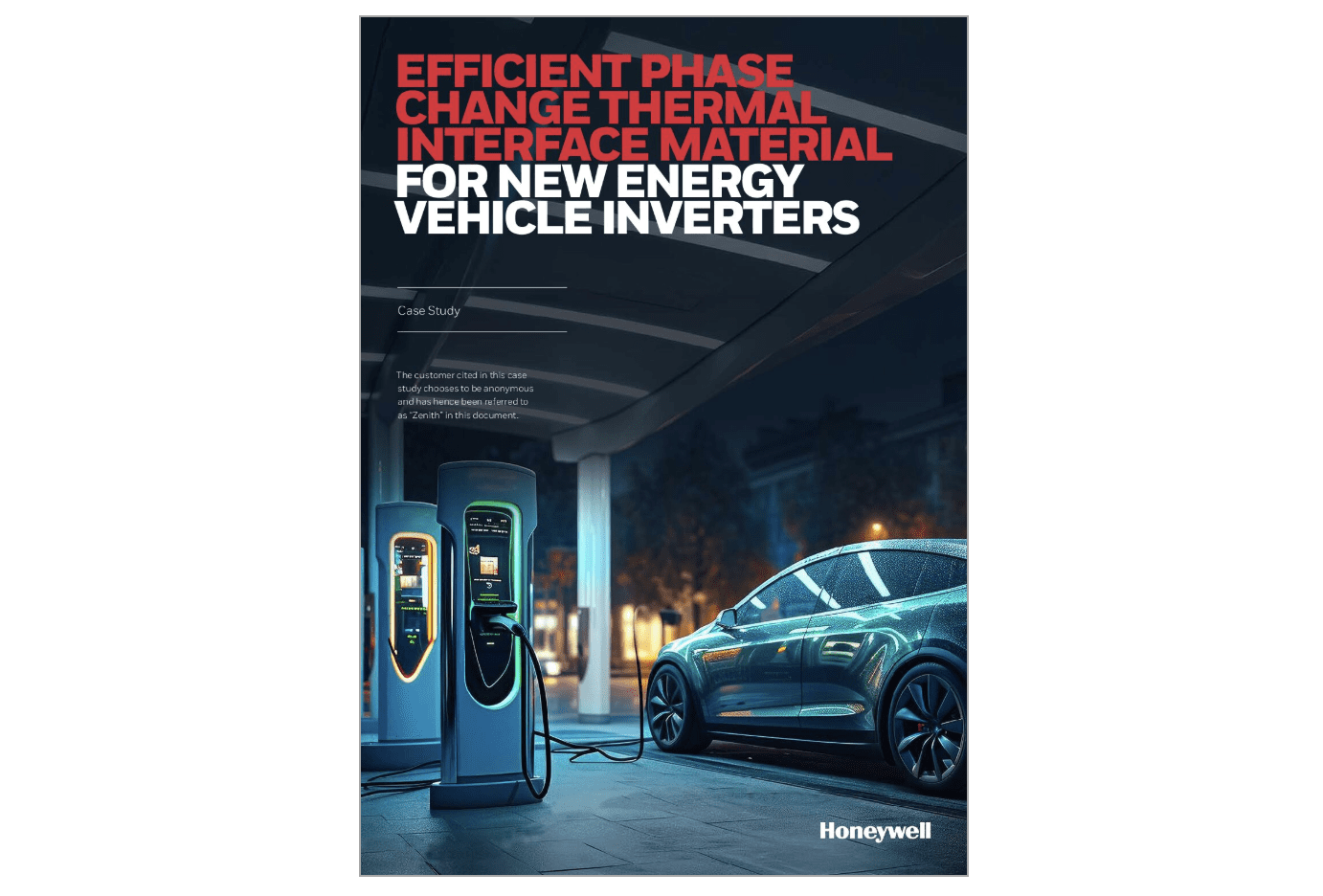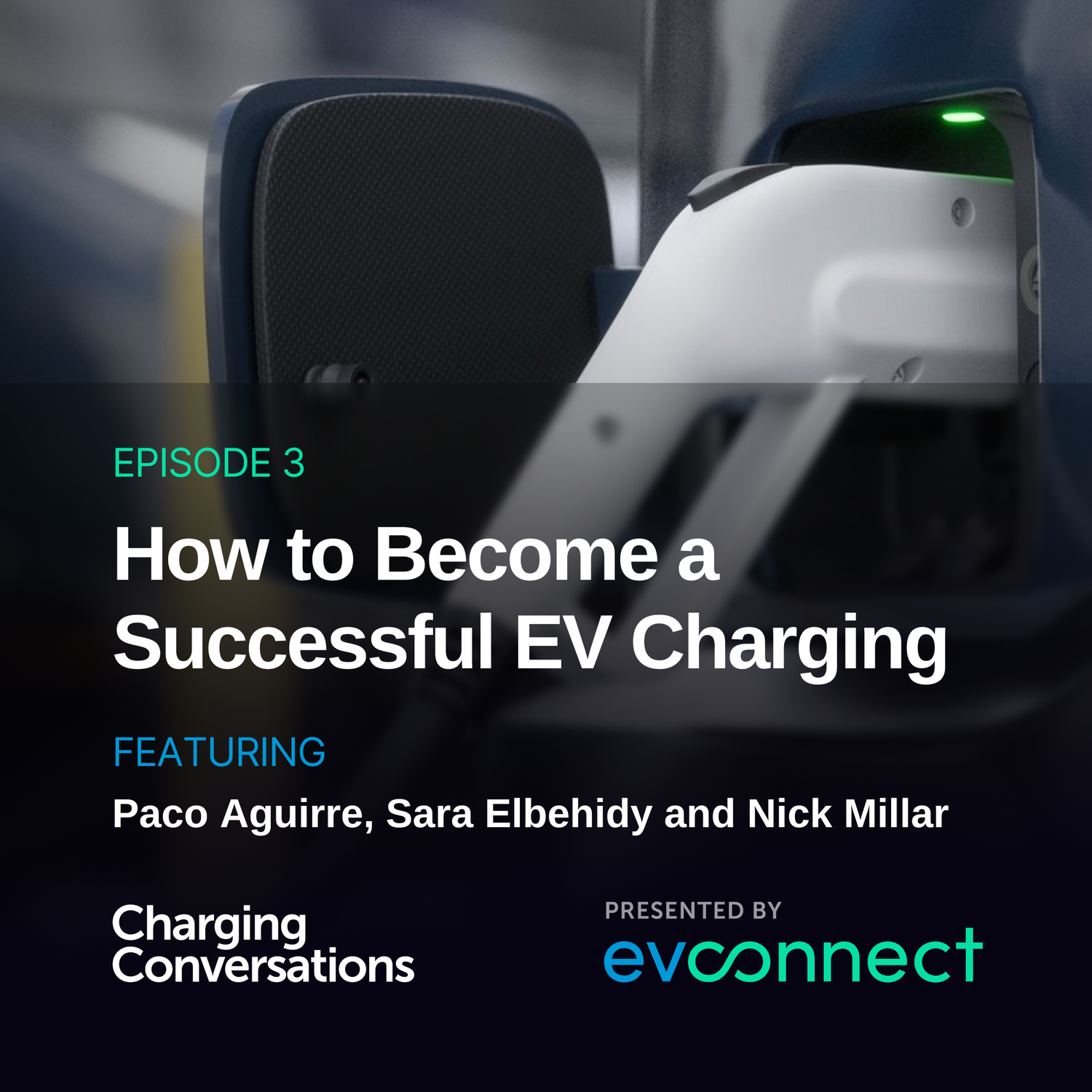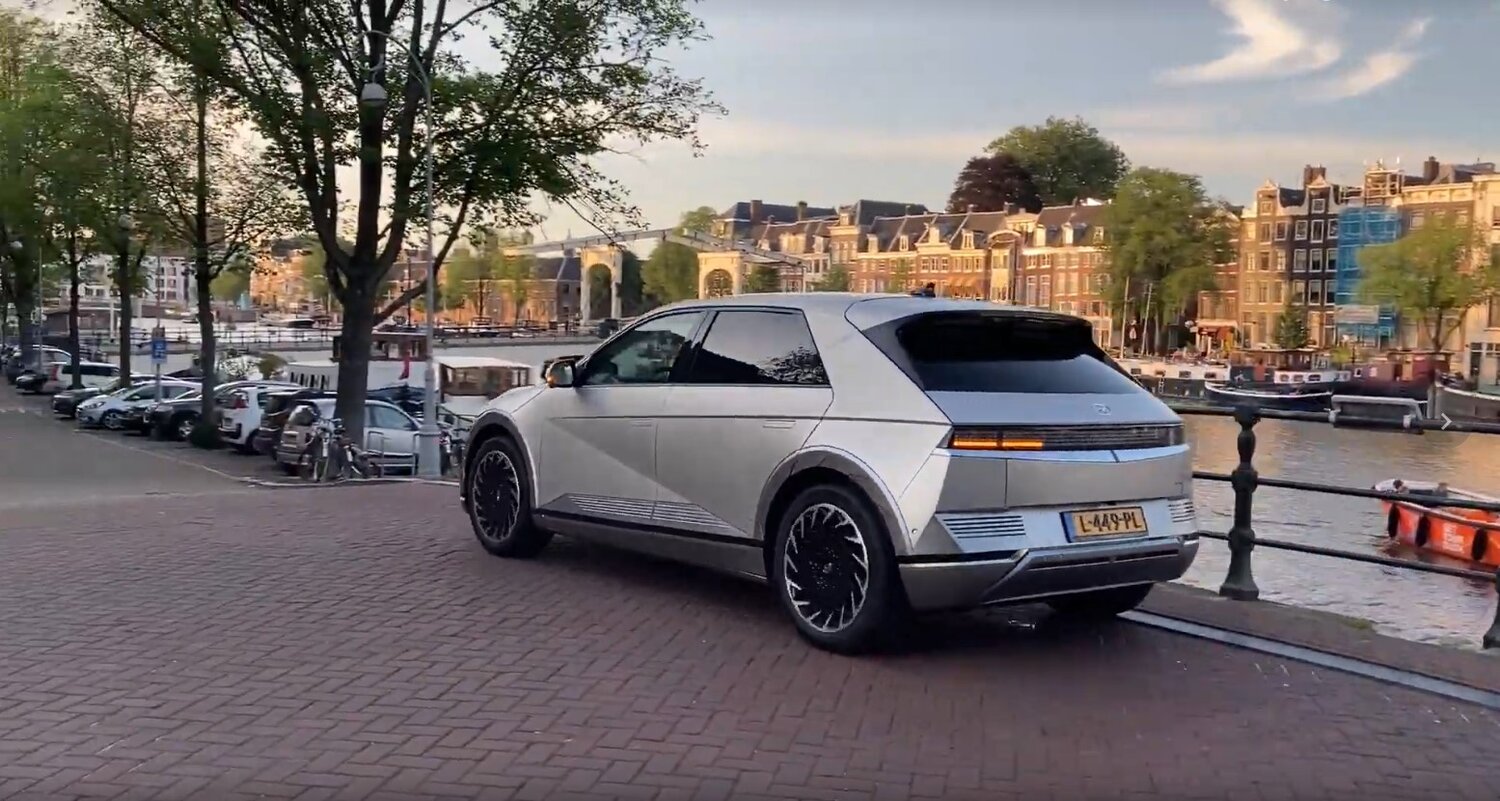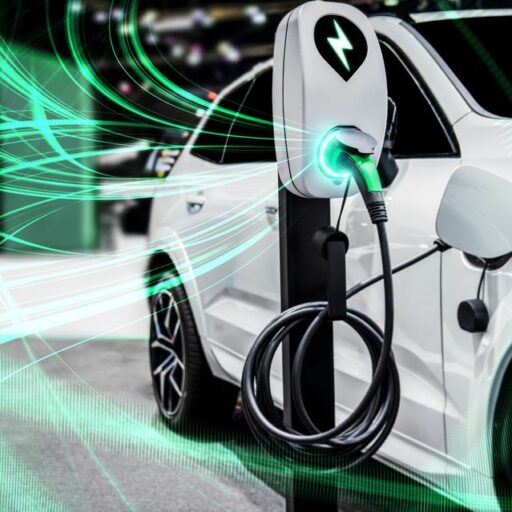
In a strongly worded statement, U.S. President Donald Trump has reiterated that there will be no electric vehicle (EV) mandate in the United States if he returns to office.
The comment, posted on his Truth Social platform, has reignited debate across the EV and automotive sectors, with industry stakeholders now reassessing the future regulatory landscape.
Once seen as allies, Elon Musk and Donald Trump appear to have drifted apart, with Trump now taking direct aim at the Tesla CEO.
In his post, Trump accused Musk of relying heavily on government subsidies and suggested that without them, Musk would have to shut down Tesla and return to South Africa.
“There will be NO EV MANDATE in the USA,” Trump stated. “Americans should have the freedom to choose what they drive — electric, gas, diesel, or hybrid.”
He further added that Musk always knew about his opposition to EV mandates, stating: “Electric cars are fine, but not everyone should be forced to own one.”
Attaching a sharp-tongued message (see screenshot), Trump wrote:
Trump’s Comment on Elon Musk and Subsidies
In the same post, Trump indirectly criticised Tesla CEO Elon Musk, suggesting that his companies rely heavily on government support.
“Without subsidies, Elon would probably have to close up shop,” Trump said, referring to Tesla, SpaceX, and Starlink — all of which have benefited from federal contracts or credits.
While Musk has long advocated for a free-market approach, Tesla has historically leveraged EV tax incentives and zero-emission credits to scale operations. report Reuters
What Is an EV Mandate?
An EV mandate typically refers to government policies that set minimum requirements or targets for the sale of electric vehicles, often as part of climate and energy goals.
Biden Administration’s Previous Policy:
- Under President Biden’s executive order in 2021, the goal was set for 50% of all new vehicles sold in the US by 2030 to be electric or zero-emission.
- The EPA finalised rules in March 2024, requiring automakers to cut tailpipe emissions by half by 2032, effectively pushing for EV sales to exceed 50% of new vehicles.
U.S. Federal EV Rules and Policies
Here’s a summary table of key U.S. Federal EV Rules and Policies
| Category | Policy/Rule | Details |
|---|---|---|
| Tax Credits – New EVs | Clean Vehicle Credit | Up to $7,500 (split: $3,750 for battery, $3,750 for minerals). Income and vehicle price caps apply. |
| Tax Credits – Used EVs | Used EV Credit | Up to $4,000. Applies to EVs ≥2 years old, priced ≤$25,000. Income limits apply. |
| Eligibility Rules | Battery & Mineral Sourcing | Critical minerals and battery parts must be sourced from U.S./allies. No parts from “foreign entities of concern” like China. |
| Point-of-Sale Credit | Transferable Tax Credit | Tax credit can now be applied instantly at the dealership instead of waiting until tax season. |
| Charging Infrastructure | NEVI Program | $5B federal plan for highway fast chargers. Must be placed every 50 miles. Some funding was paused, but courts reinstated it in 14 states. |
| Charging Connector | NACS Standard | Tesla’s NACS adopted as federal charging standard. Other automakers (Ford, GM, etc.) to follow from 2025. Top Companies. |
| Emissions Rules | EPA Tailpipe Rules | Biden-era emissions standards eased in 2025. The original target was 50% EV sales by 2030. |
| Fuel Economy Standards | CAFE Standards | Being reviewed/relaxed by DOT. Stricter efficiency targets under question. |
| Policy Reversals | Executive Freeze (2025) | “Unleashing American Energy” EO paused EV credit funding, NEVI support, and stricter mandates. Some policies have been challenged in court. |
| Proposed Repeals | Senate GOP Bills (e.g., ELITE Act) | Aim to end all federal EV credits by late 2025 or 2031, block leasing loopholes, and remove infrastructure incentives. |
How the Auto Industry Is Reacting
The EV market has grown rapidly in recent years, supported by government incentives, tax credits, and investment in charging infrastructure.
But Trump’s statement introduces potential uncertainty:
-
Automakers like Ford, GM, and Stellantis, who have committed billions toward EV manufacturing, may face reduced policy pressure.
-
EV startups and charging companies could see investor caution due to regulatory unpredictability.
-
Consumers may have greater flexibility, but fewer incentives if current mandates and subsidies are reversed.
U.S. EV Market Overview
-
EVs now account for approximately 9.6 % of all light-duty new vehicle sales in Q1 2025, up a touch from 9.3 % in Q1 2024, though down from 10.9 % in Q4 2024.
-
EV sales volume rose about 9–11 % year-over-year, reaching roughly 374,800 registrations in Q1 2025.
-
Monthly EV share held steady around 6.9 % in April and May 2025.
USA EV Manufacturer Market Share (Q1 2025, U.S.)
| Automaker | EV Market Share | Sales Highlights |
|---|---|---|
| Tesla | ~43–44 % | ~128,000 units sold—down ~9 % YoY |
| General Motors (Chevy, GM) | ~11–14 % | GM’s share rose from ~6 % to ~9 % YoY |
| Ford | Mid-range 2–5 % | Around 34,000 units Jan–May; Mach‑E & Lightning leading |
| Volkswagen Group & Others | ~10–15 % total | BMW, VW, and Nissan are growing from a low base |
Sales Data Source: Caredge
What does this mean for EV Growth in the USA?
If mandates are removed and subsidies reduced, EV sales growth in the U.S. could slow, particularly in middle-income segments where price sensitivity is higher.
However, automakers that already have EV production lines and long-term plans may continue pushing forward, driven by global demand and competition from countries with stricter emissions policies.
U.S. President Trump’s “no EV mandate” stance reinforces a shift toward consumer-driven adoption rather than government-enforced targets.
For the electric vehicle industry, this may signal a move toward open competition, but with fewer guarantees of policy support.
